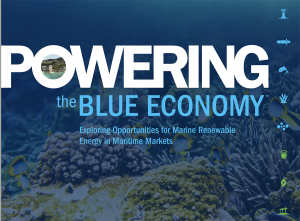
Michigan Tech is among 17 top colleges and universities nationwide that have been selected to compete in the 2021-22 Marine Energy Collegiate Competition: Powering the Blue Economy The event is hosted by the U.S. Department of Energy’s (DOE) Office of Energy Efficiency and Renewable Energy (EERE).
These student competitors are poised to be the next blue economy innovators as they gain real-world experience and make industry connections to prepare for future careers in marine energy, according to the Marine Energy Collegiate Competition.
The team’s faculty advisors are Andrew Barnard (ME-EM, GLRC), Gordon Parker, and Timothy Havens (CC, ICC).
Administered by the National Renewable Energy Laboratory, on behalf of EERE’s Water Power Technologies Office, the competition challenges interdisciplinary teams of undergraduate and graduate students to explore opportunities for marine energy technologies via real-world concept development experiences, and to propose unique solutions to the burgeoning marine energy industry.
Submissions can run the gamut from concepts that aid in ocean observation and underwater vehicle charging to desalination and more, including—but not limited to—the markets identified in DOE’s Powering the Blue Economy™ report.
Learn more about the competition and sign up for email alerts to keep up with the latest from the Marine Energy Collegiate Competition.

The DOE is hosting the challenge to advance one of the most up-and-coming industries: marine energy. Marine energy has the potential to provide reliable power to the blue economy, but further work is needed to optimize designs and reduce costs, according to the competition website.
The “blue economy” describes the sustainable use of ocean resources for economic growth, improved livelihoods and jobs, and ocean ecosystem health.
Competition Elements
- Develop a market-research-supported business plan, which will include key aspects of their design of a system that could be commercialized to address power needs for a chosen sector of the blue economy
- Pitch their plan to a panel of judges and hypothetical investors
- Have the option to build and test a device to achieve energy production
- Engage with their community through outreach and educational activities.
Competition Deliverables
- A 20- to 30-page market research-supported business plan and technical design of a marketable device powering any marine energy sector of the blue economy
- A 20-minute public pitch that will be presented to a panel of judges during the competition event at Water Power Week 2022 or virtual followed by a 15-minute Q&A session
- 5 minutes of the public pitch will focus on community engagement and outreach activities the team conducted throughout the year
- A poster summarizing the entire technical and business plan
- Optional: An effective prototype that will be tested for power performance at model scale. Results of the test will be summarized in the written report.
Inspiring Blue Economy Ingenuity
“The MECC provides an opportunity for a diversity of experience, education, and perspectives in exploring the possibilities of the blue economy,” said Arielle Cardinal, the MECC operations manager at NREL. “We’re excited to support the 2022 competitors in bringing new ideas and innovations to the forefront of marine energy.”
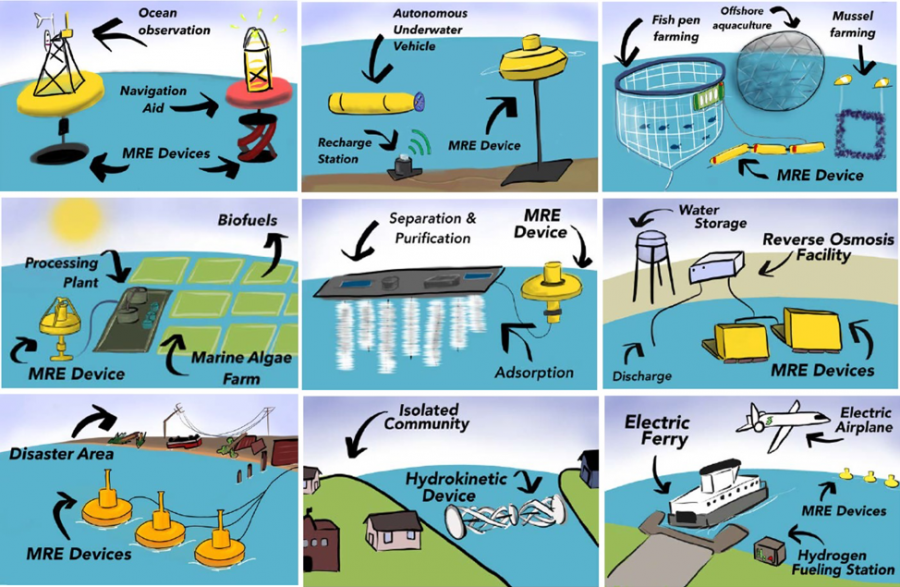
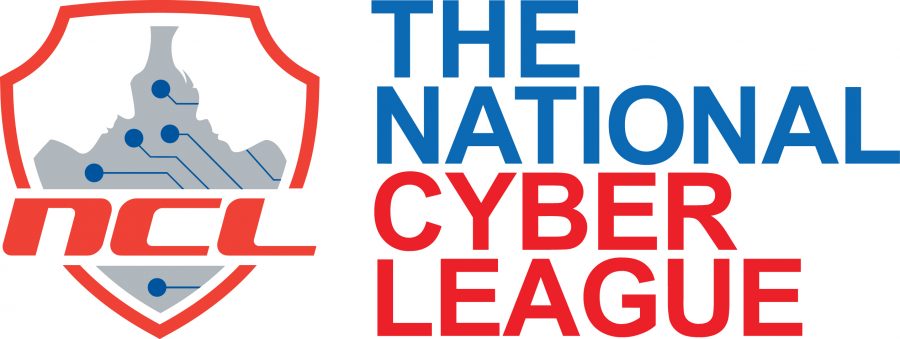
Michigan Tech ranks number three (3) in the Spring 2021 National Cyber League’s Cyber Power Rankings, rising 12 points from a Fall 2020 ranking of 15. One hundred (100) teams were ranked.
In the NCL cyber-competitions, thousands of students from hundreds of colleges and universities nationwide are challenged to identify hackers from forensic data, pentest and audit vulnerable websites, recover from ransomware attacks, and more.

Three factors are considered in a school’s annual Cyber Power Ranking. In descending magnitude of weight, they are:
- The school’s top performing team during the Team Game
- The school’s top performing student during the Individual Game
- The number of participating students from the school, with additional consideration given to better student performance during the Individual Game
Schools are ranked based on their top team performance, their top student’s individual performance, and the aggregate individual performance of their students. The rankings represent the ability of students from these schools to perform real-world cybersecurity tasks on the Cyber Skyline platform.
See how the NCL competitions work.
View the full list of NCL rankings.
The Cyber Power Rankings were created by Cyber Skyline in partnership with the National Cyber League (NCL). Every year, over 10,000 students from more than 300 colleges and universities across the US participate in the NCL competitions.
by Karen S. Johnson, Communications Director, College of Computing
The Challenge
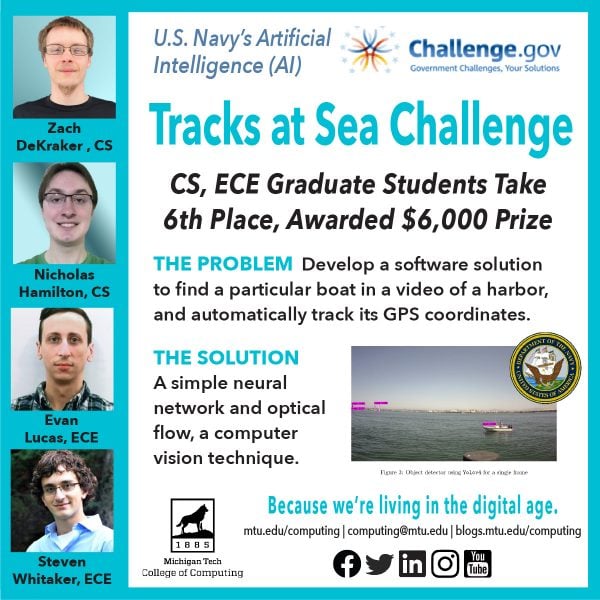
Four Michigan Tech graduate students recently took 6th place in the U.S. Navy’s Artificial Intelligence (AI) Tracks at Sea Challenge, receiving a $6,000 prize.
The Challenge solicited software solutions to automatically generate georeferenced tracks of maritime vessel traffic based on data recorded from a single electro-optical camera imaging the traffic from a moving platform.
Each Challenge team was presented with a dataset of recorded camera imagery of vessel traffic, along with the recorded GPS track of a vessel of interest that is seen in the imagery.
Graduate students involved in the challenge were Zach DeKraker and Nicholas Hamilton, both Computer Science majors advised by Tim Havens; Evan Lucas, Electrical Engineering, advised by Zhaohui Wang; and Steven Whitaker, Electrical Engineering.
Submitted solutions were evaluated against additional camera data not included in the competition testing set in order to verify generalization of the solutions. Judging was based on track accuracy (70%) and overall processing time (30%).
“We never got our final score, but we were the “first runner up” team,” says Lucas. “Based on our testing before sending it, we think it worked well most of the time and occasionally tracked a seagull or the wrong boat.”
The total $200,000 prize was distributed among five winning teams, which submitted full working solutions, and three runners-up, which submitted partial working solutions.
The Challenge was sponsored by the Naval Information Warfare Center (NIWC) Pacific and the Naval Science, Technology, Engineering, and Mathematics (STEM) Coordination Office, and managed by the Office of Naval Research. Its goal was to engage with the workforce of tomorrow on challenging and relevant naval problems, with the immediate need to augment unmanned surface vehicles’ (USVs’) maritime contact tracking capability.
The Problem
“The problem presented was to find a particular boat in a video taken of a harbor, and track its GPS coordinates.,” says Zach DeKraker. “We were provided with samples of other videos along with the target boat’s GPS coordinates for that video, which we were able to use to come up with a mapping from pixels to GPS coordinates.”
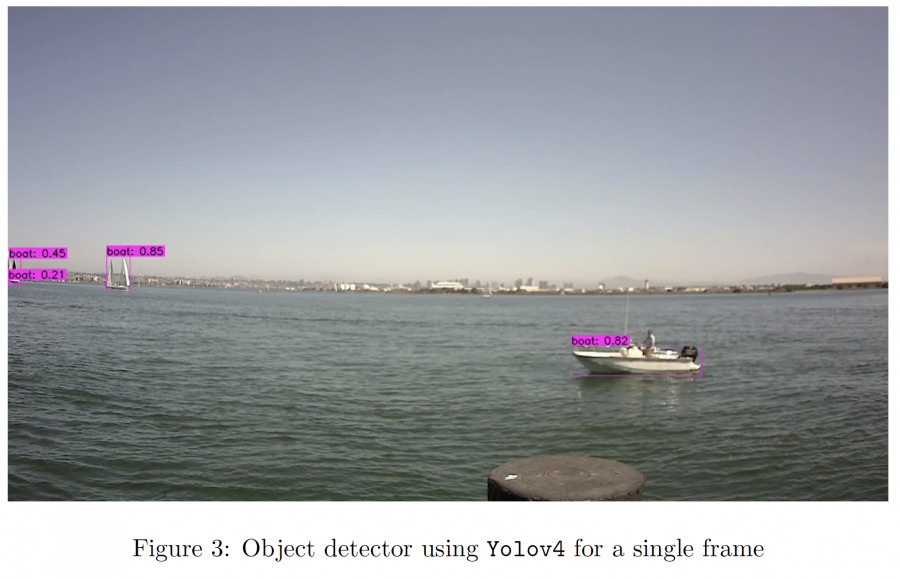
“Basically, we wanted to track boats with a video camera,” adds ECE graduate student Steven Whitaker. “Our team used machine learning and computer vision to do this. At weekly meetings we brainstormed approaches to tackling the problem, and at regular work sessions, together we programmed it all and produced a white paper with the technical details.”
Whitaker says the competition tied in pretty closely to work the students have already done. “We had a good majority of the code already written. We just needed to fit everything together and add in a few more details and specialize it for the AI Tracks at Sea research,” he explains.
Competitions like this one often connect directly or indirectly with a student’s academic and career goals.
“It’s good to not be pigeon-holed, and to use our knowledge in a different scenario,” Steven Whitaker says of these opportunities. “This helps us remember that there are other things in the world other than our small section of research.”
Dividing Responsibilities
The team knew that there were two primary issues at hand. First, how can the pixel coordinates be translated into GPS coordinates? And second, how can the boat be located so that GPS pixel coordinates can be determined?
“Once we broke it down into these two subproblems, it became pretty clear how to solve each half,” DeKraker says. “Steven had already done a significant amount of work mapping pixel coordinates into GPS coordinates, so we had a pretty quick answer to subproblem one.”

The team met weekly to discuss their ideas for the project and compare and contrast how effective they would be as solutions to the problem at hand. Then, they got together on Fridays or during the weekends to work together on the project.
“Dr. Havens would come in to our weekly meetings and nudge us in the right direction or give tips on what we should do and what we should avoid,” Whitaker adds.
For subproblem two, after some discussion the group decided it was probably best to use a machine learning approach, as that promised the most significant gains for the least amount of effort, which was important given the tight schedule.
“We tried some different sub-projects independently and then worked together to combine the parts we thought worked best,” Evan Lucas says.
The Solution
To identify the boat and track its movement, the team used a simple neural network and a computer vision technique called optical flow, which made the analysis much faster and cleaner. They used a pre-built algorithm, adding a bit of optical flow so that the boat’s position didn’t have to be verified every time.
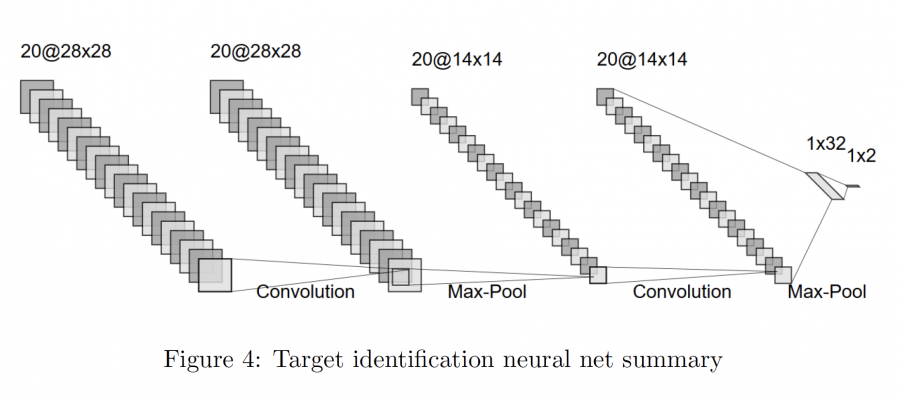
“These two tools allowed us to find the pixel coordinates of the boat and turn them into GPS coordinates,” DeKraker says, whose primary role in the project was integrating the two tools and packaging it for testing.
“Part of my PhD is to map out a snowmobile’s GPS coordinates with a camera,” Whitaker says. “This is extremely similar to mapping out a boat’s GPS coordinates. I could even say that it was exactly the same. I don’t believe I’ll add anything new, but I’ve tweaked it to work for my research.”
Whitaker sums up the team’s division of responsibilities like this: “Evan detects all the boats in the picture; Nik detects which of those boats is our boat; Steven takes our boat position and converts it to GPS coordinates, Zach glued all of our pieces together.”
DeKraker says, “One of the things the judges stressed was the ease of implementing the solution. Since that falls under what I would consider user experience (UX) or user interface (UI), it was pretty natural for me to take these tasks on, having studied software engineering for my undergrad,” DeKraker says.
A primary focus was speed. “Using machine learning for object detection tends to be slow, so to mitigate that we used the boat detector only once every 5 seconds,” DeKraker explains.
“Most of the tracking was done using a very fast technique called optical flow, which looks at the difference between two consecutive frames of a video to track motion,” DeKraker says. “It tended to drift from the target though, so we decided on running the boat detector every 5 seconds to keep optical flow on target. “
“The end result is that our solution could run nearly in real-time,” he says. “The accuracy wasn’t the best, but given a little bit more time and more training data, the neural network could be significantly improved.”
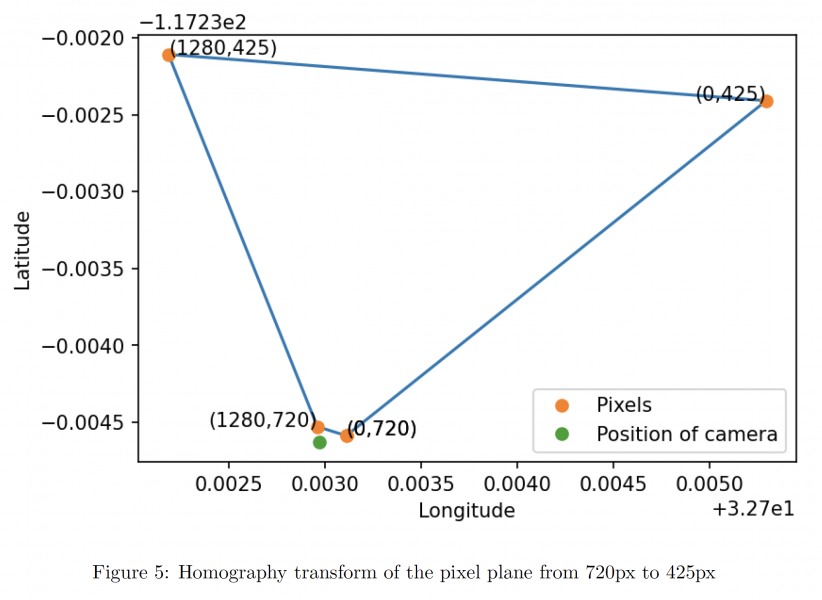
Zach DeKraker
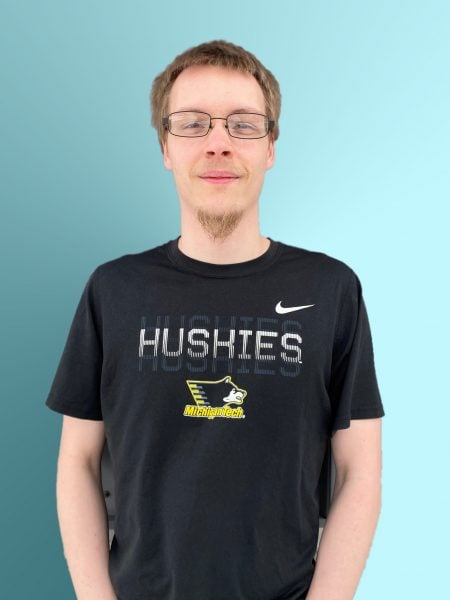
DeKraker’s graduate studies focus heavily on various machine learning techniques, He says that this opportunity to integrate machine learning into our solution was a fantastic experience.
“First, it sounded like an interesting challenge. I don’t get to do a lot of software design these days, and this challenge sounded like a great opportunity to do just that,” he explains.
“Second, it looked like a great opportunity to build up my resume a little bit. Saying that you won thousands of dollars for your university in a nationwide competition sounds really good. And finally, I really wanted the chance to see a practical application of machine learning in action.”
DeKraker completed a BS in Software Engineering at Michigan Tech in 2018. He returned to Michigan Tech the next year to complete his master’s degree. He says the biggest reason he did so was to learn more about machine learning.
“Before embarking on this journey, I really didn’t know anything about it,” he says of machine learning. “Having this chance to actually solve a problem, to integrate a neural network into a fully realized boat tracker using nothing but a video helped me see how machine learning can be used practically, rather than merely understanding how it works.”
And although it was a fascinating exploration into the practical side of machine learning and computer vision, DeKraker says it’s rather tangential to his main research focus right now, which is on comparing different network architectures to evaluate which one performs best given particular data and the problem being solved.
DeKraker believes that the culture is the most magnetizing thing about Tech. “Everybody here is cut from the same cloth. We’re all nerds and proud of it,” he explains. “You can have a half-hour conversation with a complete stranger about singularities, the economics of fielding a fleet of star destroyers, or how Sting was forged.”
And the most appealing thing about Michigan Tech was its size. DeKraker says. “When I looked at a ranking of the top universities in Michigan, Tech was number 3, but still extremely small. It was a perfect blend of being a small but very good school.”
And he says the second-best thing about Tech is the location. “The Keweenaw is one of the most beautiful places on earth.”
DeKraker has many ideas about where he’d like to take his career. For instance, he’d love the chance to work for DARPA, Los Alamos National Laboratory, or NASIC. He also intends to commission into the Air Force in the next couple of years, “if they have a place for programmers like me.”
Evan Lucas
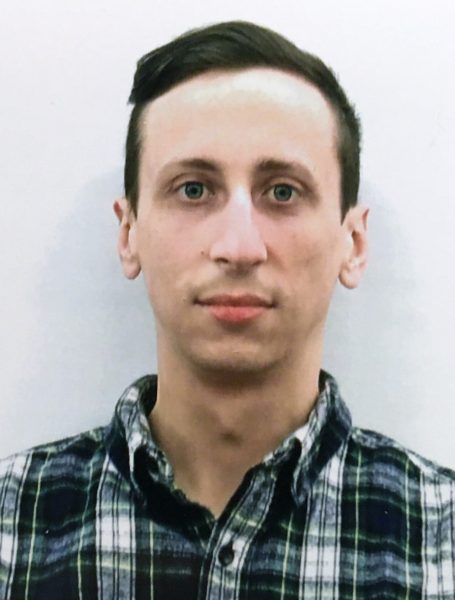
Evan Lucas is a PhD candidate in the Electrical Engineering department., advised by Zhaohui Wang. Lucas completed both a bachelor’s and master’s in Mechanical Engineering at Tech in 2012 and 2014,
Lucas, whose research interests are in applying machine learning methods to underwater acoustic communication systems, worked on developing a classifier to separate the boat of interest from the many other boats in the image. Although the subject of the competition is tangential to Lucas’s graduate studies, as computer vision isn’t his area, there was some overlap in general machine learning concepts. respectively.
“It sounded like a fun challenge to put together an entry and learn more about computer vision,” Lucas says. “Working with the rest of the team was a really good opportunity to learn from people who have experience making software that is used by other people.”
Following completion of his doctoral degree, hopefully in spring 2023, Lucas plans to return to industry in a research focused role that applies some of the work he did in his PhD.
Steven Whitaker
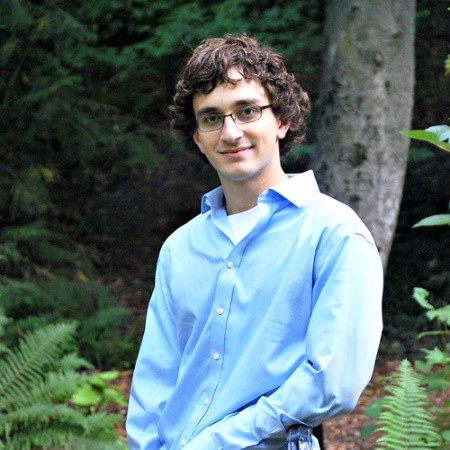
Steven Whitaker’s research interests are in machine learning and acoustics. He tracks and locates the position of on-ice vehicles, like snowmobiles, based on acoustics. He says he has used some of the results from this competition project in his PhD research.
Whitaker’s machine learning research is experiment-based., and that’s why he chose Michigan Tech. “There aren’t many opportunities in academia to do experiment-based research,” he says. “Most machine learning is very software-focused using pre-made datasets. I love doing the experiments myself. Research is fun. I enjoy getting paid to do what I normally would do in my free time.”
In 2019, Whitaker completed his BS in Electrical Engineering at Michigan Tech. He expects to complete his master’s degree in Electrical Engineering at the end of the summer 2021 semester, and his PhD in summer 2022. His advisors are Tim Havens and Andrew Barnard.
Whitaker would love to be a university professor one day, but first he wants to work in industry.
Background Info
Timothy Havens is associate dean for research, College of Computing; the William and Gloria Jackson Associate Professor of Computer Systems; and director of the Institute of Computing and Cybersystems (ICC). His research interests are in pattern recognition and machine learning, signal and image processing, sensor and data fusion, heterogeneous data mining, and explosive hazard detection.
Michael Roggeman is a professor in the Electrical and Computer Engineering department. His research interests include optics, image reconstruction and processing, pattern recognition, and adaptive and atmospheric optics.
Zhaohui Wang is an associate professor in the Electrical and Computer Engineering department. Her research interests are in communications, signal processing, communication networks, and network security, with an emphasis on underwater acoustic applications.
The Naval Information Warfare Center (NIWC) Pacific and the Naval Science, Technology, Engineering, and Mathematics (STEM) Coordination Office, managed by the Office of Naval Research are conducting the Artificial Intelligence (AI) Tracks at Sea challenge.
View more details about the Challenge competition here: https://www.challenge.gov/challenge/AI-tracks-at-sea/
Watch a Navy webinar about the Challenge here: https://www.youtube.com/watch?v=MjZwvCX4Tx0.
Challenge.gov is a web platform that assists federal agencies with inviting ideas and solutions directly from the public, or “crowd.” This is called crowdsourcing, and it’s a tenet of the Challenge.gov program. The website enables the U.S. government to engage citizen-solvers in prize competitions for top ideas and concepts as well as breakthrough software, scientific and technology solutions that help achieve their agency missions.
This site also provides a comprehensive toolkit, a robust repository of considerations, best practices, and case studies on running public-sector prize competitions as developed with insights from prize experts across government.
One Michigan Tech graduate student found a silver lining of the pandemic-driven shift to remote study: the ability to gain experiences previously prevented by distance. And “gained experience” is an understatement, as Brooke Poyhonen recently was on the winning team in the Texas Health Care Challenge, an online hackathon that sought solutions to problems in health care.
The winning project, from Team WatsonCares, focused on women’s postpartum health and proposed a suite of services for new mothers:
- A natural-language chatbot, powered by IBM Watson’s AI, to answer patient questions about both mental and physical health
- A community feature allowing postpartum women to support one another
- Deep informational and support resources
Poyhonen said the team came together because after hearing initial “problem pitches,” in which existing teams outline the projects they want to tackle, some were uninterested in the originally pitched ideas. So they created their own team. “Ideally, we want the chatbot to be personalized to the patient’s history,” she said. “And we wanted to create a safe space for women to talk to each other.”
Poyhonen will complete her accelerated M.S. in applied cognitive science and human factors this spring. She earned a B.S. in psychology from Michigan Tech in 2020. Both degrees are offered by the Cognitive and Learning Sciences department in the University’s College of Sciences and Arts.
The Texas challenge is normally on-site only, and she appreciated the chance to participate and urges other students to seek out similar opportunities. “It was great to meet people from around the country and work with a team on a real-world goal,” Poyhonen said. “It’s a great networking opportunity and gives me a concrete project to discuss in interviews. It was just so rewarding.”
The team’s prize included $120,000 in credits toward IBM products and services, a smaller cash award, and temporary office space with a Dallas venture capital firm. Poyhonen is working with team members on the project as a start-up while also pursuing other opportunities.
She got her first taste of hackathons over the winter in the Work Related Musculoskeletal Disorders Grand Challenge, run by the American Registry for Diagnostic Medical Sonography. The challenge was to help the up to 90% of sonographers who develop disorders such as occupational overuse syndrome. Her team, which included a sonography mentor, an engineering student and two sonography students, created the Air Buddy, a device to help sonographers apply pressure to a probe with reduced physical stress. Poyhonen’s team won first place after judges deliberated for an entire week after the month-long window for teams to work on the problem.
Kelly Steelman, interim chair of the Cognitive and Learning Sciences Department, said hackathons are great supplements to classroom experiences. “I commend Brooke for taking the initiative to seek out design challenges as a way to build her portfolio of experiences and hone the skills she’s learned in our program,” Steelman said. “Brooke took advantage of opportunities through outside organizations, but we also offer hack-a-thons right here on campus.”
She said Husky Innovate is currently planning their inaugural hack-a-thon as part of an initiative to grow the human-centered design community at Michigan Tech. For more information on this, contact Lisa Casper.
Dr. Steelman is a member of the Human-Centered Computing research group of the Institute of Computing and Cybersystems (ICC).
Michigan Tech’s graduate program in Applied Cognitive Science and Human Factors teaches students how to apply principles of psychology to the design and evaluation of human-technological systems. Steelman said Beth Veinott, director of the Center for Human-Centered Computing, frequently reinforces for students that, “If you get the psychology right first, you design the right system, it is easier to train, and people are more likely to adopt it.”
by Pavlis Honors College
The 21st Design Expo will continue virtually, but with a twist! Combining lessons learned from our first successful Virtual Design Expo and the desire to engage student teams synchronously, the Design Expo committee is excited to invite the Michigan Tech community, program friends and sponsors to register for this year’s Design Expo held via Gatherly, a platform used to simulate synchronous interactions and discussions, similar to a live MUB ballroom event.
Similar to last year’s Virtual Design Expo, more than 1,000 students in the Enterprise and Senior Design programs will come together to put on a virtual showcase of their work and compete for awards. This year, a panel of judges, made up of distinguished corporate representatives, alumni, community members, and Michigan Tech staff and faculty will critique videos of team projects, solutions, and results. We will kick-off and close the event via Zoom. At 11:30 AM participants will transition over to Gatherly, for the live two-hour synchronous showcase for student projects.
This event is free and open to the public. We encourage current and future students, faculty, staff, parents, alumni, families of students. etc to help us celebrate our students and their achievements—register today to virtually attend Design Expo.
2021 Schedule of Events:
Monday, April 12
- Noon — Remote judging open
Thursday, April 15
- 11 a.m.: Opening remarks via live webinar
- 11:30 a.m.: Gatherly event opens
- 1:30 p.m.: Gatherly event closes
- 3 p.m.: Presentation of Awards via live webinar
- 3:30 p.m.: 2021 Design Expo concludes
Interested in judging for the 21th annual Design Expo? This year, judges will have the flexibility to judge team videos anytime between noon on April 12 through 1:30 p.m. on April 15. In addition to video judging, judges will be asked to attend Design Expo between 11:30 a.m. – 12:30 p.m. during the Judging Hour on April 15 to visit assigned teams via Gatherly.
Judges will be selected based on the availability to attend Design Expo during the synchronous event starting at 11:30 a.m. Judges will be assigned three to five teams to view and evaluate team videos over a four-day period (April 12-15) using an electronic ballot sent out via email and/or text message.
Judges will then judge the same three to five teams during the synchronous events 11:30-1:30 p.m. There will be a designated judging hour 11:30 a.m. to 12:30 p.m. but judges may continue scoring teams until 1:30 p.m.
Please consider serving as a judge — we welcome all Michigan Tech faculty, staff, alumni, industry representatives, community members, and anyone interested in the great work of our students!.
Click here for more information on attending and judging Design Expo. Check out all of the details of Design Expo here. For questions, please reach out to Briana Tucker.
What: Info Session: ICPC Programming Competition
When: Thursday, February 11, 6:00 to 7:00 p.m.
Where: Zoom
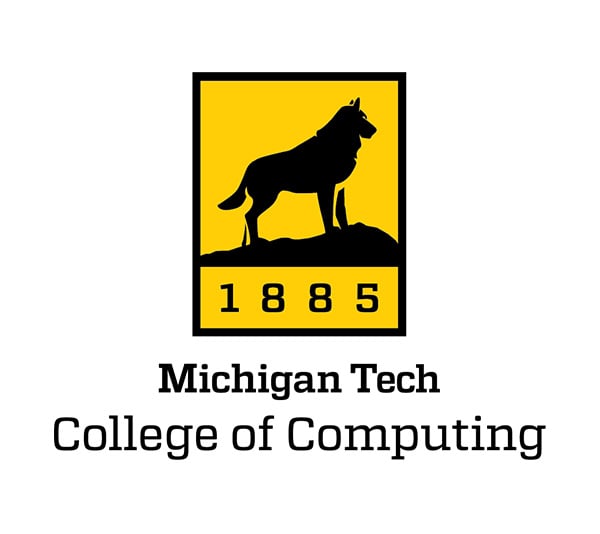
An information session about the ICPC Programming Competition will take place this Thursday, February 11, from 6:00 to 7:00 p.m.
ICPC Programming Competition, North America North Central Regionals, will be held, Saturday, February 27, 2021. The contest will be held remotely using the Kattis contest system and Zoom for team communication.
Practice contests will be organized prior to the event.
Please contact Associate Professor Laura Brown (lebrown@mtu.edu), Computer Science, with questions.
What are programming competitions?
Programming competitions are team events (groups of 3 students) that test student knowledge through the answering of programming questions, correctly and quickly. Top teams at the various events can go on to compete against top teams in the world.
Why do you want to participate?
The programming contest tests your skills against other teams and universities, helps in developing problem solving skills, and can aid in preparation for job interviews, offering practice in solving problems quickly.
When and how you can participate?
The programming contest is usually held in the Fall, but runs virtually in spring 2021. Student eligibility rules are listed here: https://icpc.baylor.edu/regionals/rules, which basically indicate that the student 1) can compete a maximum of five times at the regional levels, 2) started college in 2016 or later, and 3) was born 1997 or later. First year graduate students may be able to participate under these rules.
Forming teams
Students who are interested and eligible may sign up to form teams of up to three students.
If you are unable to attend the information session, please complete the form linked to below to indicate your interest, register teammates, or notify organizers that you are looking for teammates.
https://forms.gle/AYtCmJzxNyf2YWGb6
Fine more information and resources at https://bit.ly/3aLiu1O.
by Graduate Student Government
Registration for this year’s virtual Graduate Research Colloquium (GRC) is open. Due to the continuation of the SARS-CoV-19 pandemic, the GRC will be held virtually on Thursday and Friday, April 1and 2.
The GRC is a great opportunity to work on your presentation skills and prepare for upcoming conferences. Students are free to give an oral presentation, a poster talk, or both. All talks will be scored by judges from the same field as the presenter.
Cash prizes are available for the top three places in both oral and poster presentations (1st – $300, 2nd – $200, and 3rd – $100). Registration closes Tuesday March 2, at 11:59 PM. Register today.
Poster presentations will take place in a pre-recorded video style. The deadline for video submission is Monday, March 22. A short Q&A session will take place with judges between 4-6 p.m. on April 1. Oral presentations are limited to 12 minutes plus a Q&A session.
The GRC will be capped off with a virtual awards ceremony. All participants and judges are invited to attend. The ceremony will be held on April 2, from 5-7 pm. Full information can be found on our website.
Feel free to contact Sarvada Chipkar if you have any questions or concerns.
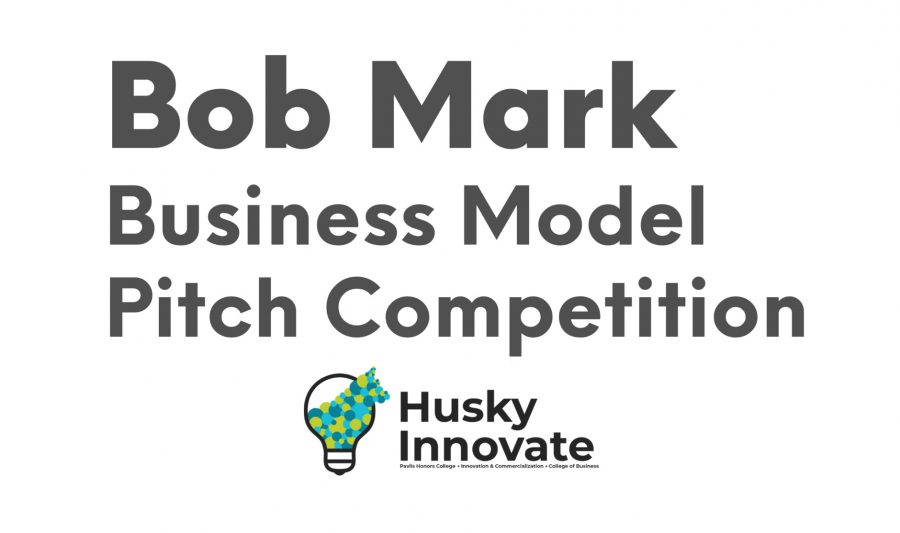
The virtual Bob Mark Business Model Pitch Competition takes place Thursday, January 28, 2021, from 5:30 to 7:30 p.m.
Graduate and undergraduate students from across campus disciplines are invited to compete. When registering, contestants can choose the competition category, as this year two pitch competition categories are available.
A tribute to the late Professor of Practice Bob Mark, College of Business, the Bob Mark Business Model Pitch Competition recognizes student entrepreneurial spirit.
Faculty, staff, students, alumni, and the community are invited to attend this energized virtual pitch competition.
Register to attend the Bob Mark Business Model Competition
Register to compete in the Bob Mark Business Model Competition
Category 1: Idea Pitch
A two-minute idea pitch that presents a creative solution to a problem. Pitches will be evaluated on their uniqueness and the potential impactfulness.
Category 2: Business Model Pitch
A four-minute business model pitch which touches on the innovation technology, emphasizes product-market fit and the potential value it brings to the market. Prizes will be awarded to the most scalable and actionable business model pitches. Participants in the Business Model Pitch category are encouraged to sign up for the Business Model Boot Camp workshop on January 20, 2021 https://bit.ly/HuskyInnovateBootcamp
This event is hosted by Husky Innovate, a collaboration between Pavlis Honors College, the College of Business and the Office of Innovation and Commercialization. Prizes will be awarded by the College of Business, the MTEC SmartZone, and Husky Innovate.
Prizes include:
Idea Pitch Category
- First Prize: $125
- Second Prize: $75
- Third Prize: $50
- Social Impact Award: $100 (sponsored by Dr. Ellie Asgari – COB Gates Professor)
Business Model Category
- First Prize: $2,000 (sponsored by Rick and Jo Berquist)
- Second Prize: $1,000
- Third Prize: $500
- Honorable Mention (2 prizes): $250 each Audience Favorite: $250
- MTEC SmartZone Breakthrough Innovation Award: $1,000
- Social Impact Award: $1,000 (sponsored by Dr. Ellie Asgari – COB Gates Professor)
Husky Innovate is Michigan Tech’s innovation and entrepreneurship resource hub. The unit hosts free workshops, competitions, NSF I-Corps lean startup workshops, innovation talks, internships, mentorship, and the Silicon Valley Experience.

Winter WonderHack is just around the corner. The event begins February 19, 2021, at 9:00 p.m., and ends February 21, 2021, at 9:00 a.m.
Are you an up-and-coming coder? Do you have a coding project in mind you’ve been itching to finally bring to fruition? Or perhaps you have no ideas, but you need to add some new projects to your resume, something you can brag about to recruiters?
Do you like to win prizes? How about just hanging out and/or playing games?
Do all of the above and more at the virtual Winter WonderHack February 19-21.
The event is sponsored by the College of Computing, Wolfram Language, Auto Owners Insurance, and Domino’s Pizza.
“Okay, but what IS Winter WonderHack?” you may ask.
Winter WonderHack is a hackathon hosted annually by MTU’s very own Humane Interface Design Enterprise, or HIDE. It is an event that extends over 36 hours, in which groups ranging in size from one to four people come together to build and code any project from scratch–but it’s not all work and no play! There are a wide range of activities that will be occurring all day and all night for you to take a break from brainstorming and just have fun!
After the 36th hour on Sunday, all projects will be presented to a panel of judges, and then prizes will be awarded under a variety of categories, ranging from the Most Creative project to the Most Useless!
For the entire weekend, MTU’s Red Team will host a Capture the Flag event. On Saturday, a Rocket League tournament will occur! Both events will be conducted virtually via Discord. (For anyone worried about missing out, Rocket League is available free for download on PC, PS4, XBox One, and Nintendo Switch.)
All events during Winter Wonderhack are free, and all levels of technical backgrounds are welcome to attend! To register, visit the Winter Wonderhack website at https://winterwonderhack.com/#, and click on the Register link.
Do you have more questions about the event? Please reach out to team@winterwonderhack.com. We hope to see you there!